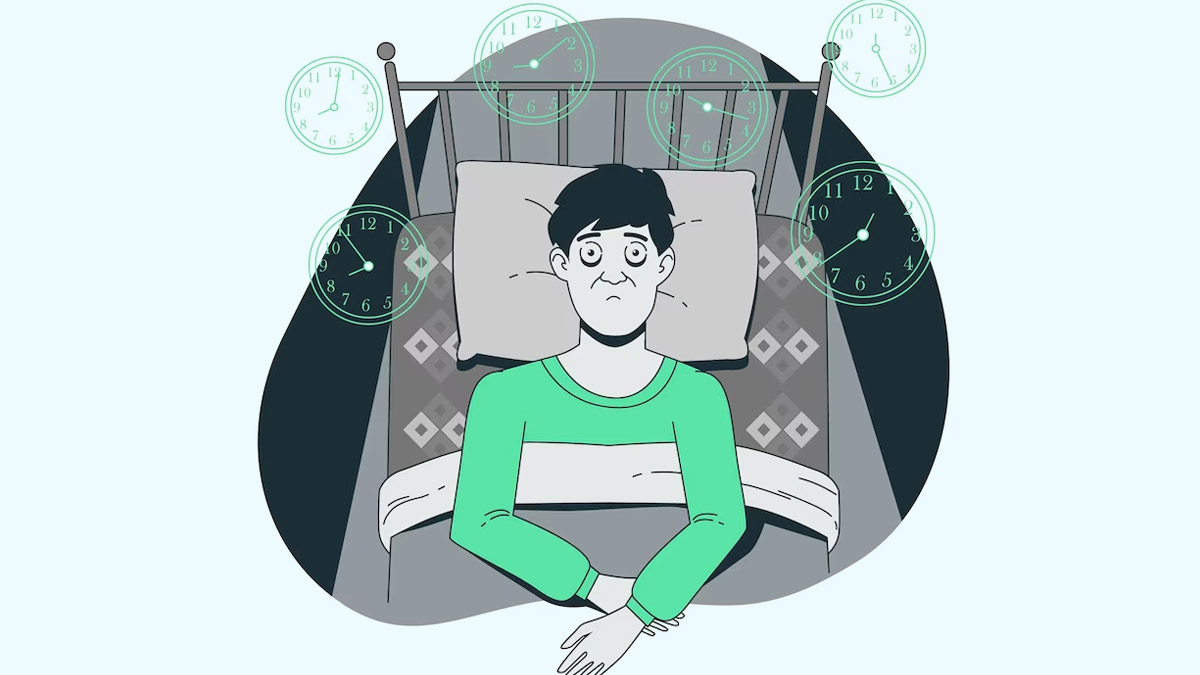
Insomnia is a prevalent sleep problem that can have a negative impact on one's quality of life. It is characterised by difficulty in falling asleep, staying asleep, or experiencing unrefreshing sleep. People with insomnia may also wake up feeling tired, despite having slept for an adequate number of hours. A variety of environmental, physical, and psychological factors can cause insomnia. In some cases, it is a sign of an underlying medical condition.
Table of Content:-
The most common insomnia symptoms include difficulty in falling asleep, waking up frequently during the night, waking up too early, and feeling tired and unrefreshed during the day. Other symptoms can include difficulty concentrating, irritability, and decreased motivation. Insomnia can also lead to other physical symptoms such as headaches, stomach aches, and muscle pain. Let's know about the types of insomnia.
Primary Insomnia
Primary insomnia is a sleep disorder that is not caused by any underlying medical condition. It is usually caused by stress, anxiety, depression, or a change in routine. Primary insomnia symptoms include difficulty in falling asleep, waking up frequently during the night, and not feeling well rested.
Also read: Suffering From Insomnia? Try The Healing Power Of Crystals For A Sound Sleep
Secondary Insomnia
An underlying medical condition, such as chronic illness, pain, or certain medications cause secondary insomnia. It is usually more severe than primary insomnia and can lead to more serious health complications. Symptoms of secondary insomnia include difficulty falling asleep, waking up frequently during the night, and not feeling rested enough after waking up.

Transient Insomnia
Transient insomnia is a short-term form of insomnia that usually lasts up to three weeks. A change in routine or a stressful event usually causes it. Symptoms of transient insomnia include difficulty in falling asleep, waking up frequently during the night, and not feeling rested after waking up.
Acute Insomnia
Acute insomnia is a more severe form of insomnia that lasts up to three months. A traumatic event or stress usually causes it. Symptoms of acute insomnia include difficulty falling asleep, waking up frequently during the night, and not feeling rested after waking up.
Also read: 9 Things You Need To Know About Insomnia: Causes, Effects And Cure
Chronic Insomnia
Chronic insomnia is a long-term form of insomnia that lasts for more than three months. An underlying medical condition, such as chronic pain or depression usually causes it. Symptoms of chronic insomnia include difficulty falling asleep, waking up frequently during the night, and not feeling rested.

Treatment Options
Treatment of insomnia often involves:
- Making lifestyle changes such as avoiding caffeine.
- Exercising regularly.
- Establishing a regular sleep schedule.
Other treatments can include cognitive behavioural therapy, relaxation techniques, and medication. If insomnia persists, it is important to speak to a doctor or healthcare professional to identify any underlying causes and determine the best course of treatment.
Image credit- FReePik
Also watch this video
Read Next
Strep Throat: Signs And Treatment
How we keep this article up to date:
We work with experts and keep a close eye on the latest in health and wellness. Whenever there is a new research or helpful information, we update our articles with accurate and useful advice.
Current Version